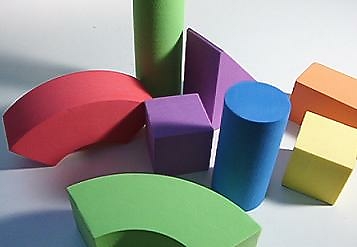Our team drew inspiration from the literature to start thinking and designing for Texel. We started by using an article (Pesch, 2015) and a book chapter (Borræs & Edler, 2014) to delineate our idea of how Texel currently innovates and how it can engage in the process of permanently innovate. From that literature, we collected the concepts that we found most useful for our research; afterwards, each member of the team gave its own interpretation of the concept and its application to our research. Individual interpretations are available in Appendix 1.0 and group interpretation is explained below.
Socio-technical systems are wholes made by social and technical entities, as well as their interactions; they adapt, learn, evolve and usually have a purpose or objective (Borræs & Edler, 2014). They involve cooperation between technology suppliers, technical aspects, consumers and social aspects, leading to the development of knowledge in a specific context.
We can think of Texel as a socio-technical system, and Permanently Innovate, as a sub-system. The purpose of such a sub-system would be the continuous creation of relevant innovation systems that can overthrow the regimes of existing systems whenever it is necessary.
The changes previously described are known in the literature as sustainability transitions (Pesch, 2015). Socio-technical systems have a set of social rules, called regime, that determine how the actors manage the technology, how they interact with it and with each other and even how they understand the world. A sustainable transition is one that achieves the desired and desirable change in that regime. According to (Loorbach, 2007), transitions can be seen as processes that transform structures, institutions, culture and practices by either breaking them down or establishing new ones. Then, a sustainable transition is a transition in which sustainable structures, institutions, culture and practice is established. Our work with Permanently Innovate needs to focus on a change of regime in order to achieve sustainable change. Thus, we need to think in the long term and not only in temporary projects.
To achieve those sustainability transitions, governance of change will be necessary (Borræs & Edler, 2014). This concept refers to intentional interaction between actors in the ST&I system, fostering or inhibiting change in a certain direction and in a certain way. Some actors in Texel might resist to the creation of a Permanently Innovate sub-system as well as the subsequent systems of innovation. Therefore, it will be important to identify which actors and interactions are important to provoke a change in a system; as well as other actors who may may not want the change to happen and their motivations. This identification will enable a better understanding of the system and the strategies that should be adopted.
A second way of achieving those transitions is by being aware of the actors' agency, referring to the resources, like political power, social relations, monetary or natural capital, that actors in a system have and that can be used to achieve a transition (Pesch, 2015). Therefore, When we study our socio-technical system and sub-system, we need to think not only on who are the actors involved, but also in terms of the agency they possess.
A third consideration for planning, conducting and achieving sustainability transitions is strategic niche management. A socio-technical niche is a space that is smaller and more protected than the real world, where people are able to experiment with different technologies and regimes (Pesch, 2015). They can accelerate a transition process by exploring what a change would bring. Niche management is the intentional creation of those niches to seize their benefits; thus, it could accelerate Texel's transition. Moreover, at some point Texel itself could become the host of niches on which external actors could experiment and learn about sustainability transitions. Thus, the design of the sub-system would benefit from strategic niche management within the island.
Lastly, the successful and long-lasting creation of such a socio-technical sub-system requires a socio-technical transition. Texelaars and, in some cases visitors, need to explore the socio-technical regime that is currently in place, and reflect on what changes are required for the creation of Permanently Innovate. The implementation of the changes in the regime is what we understand as a sustainable transition (Pesch, 2015). In such a transition, sustainable attention is required for agency that each of those actors has; both, researchers and Texelaars need to be aware of who possesses the resources that could enable the transition.
